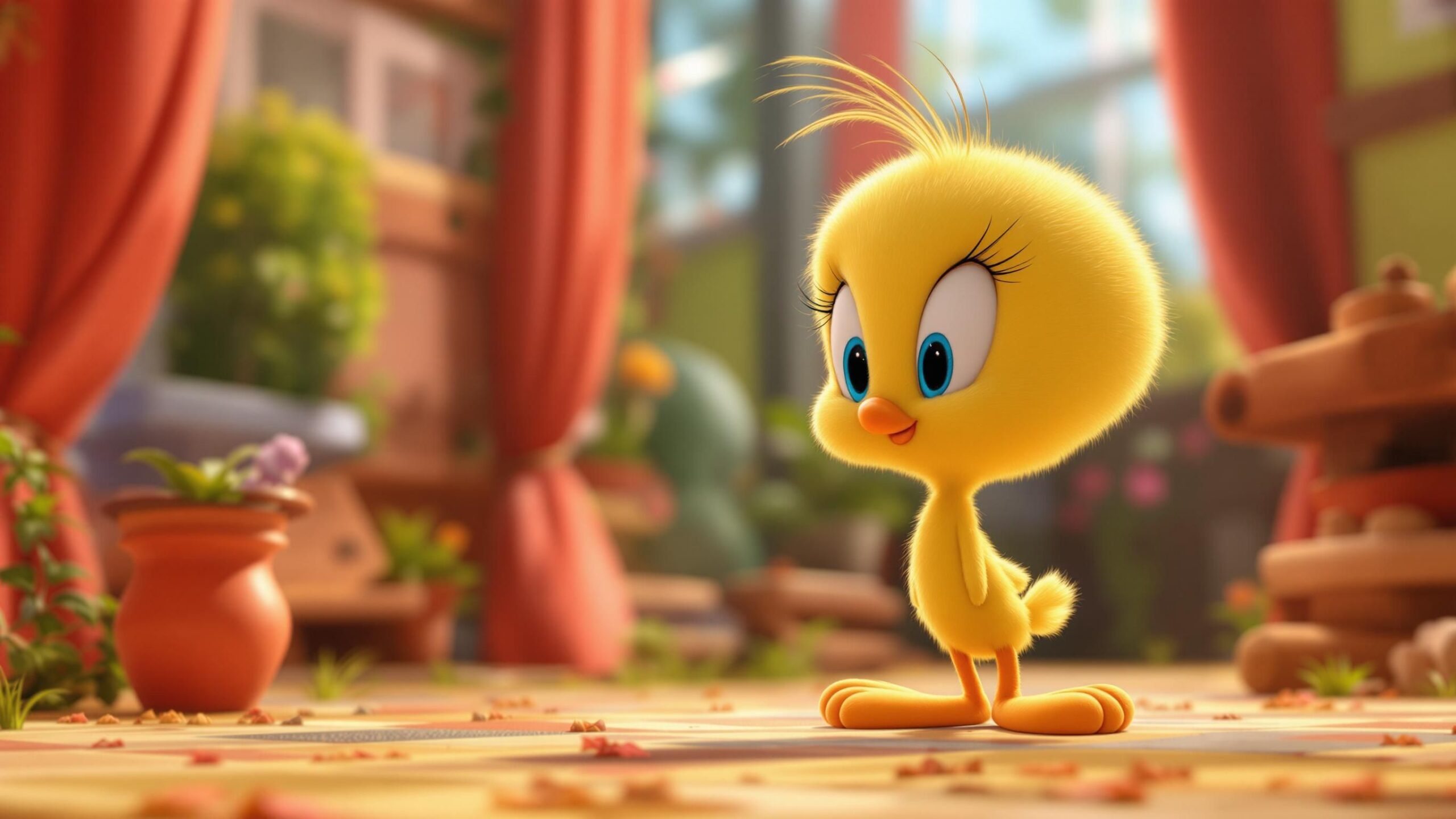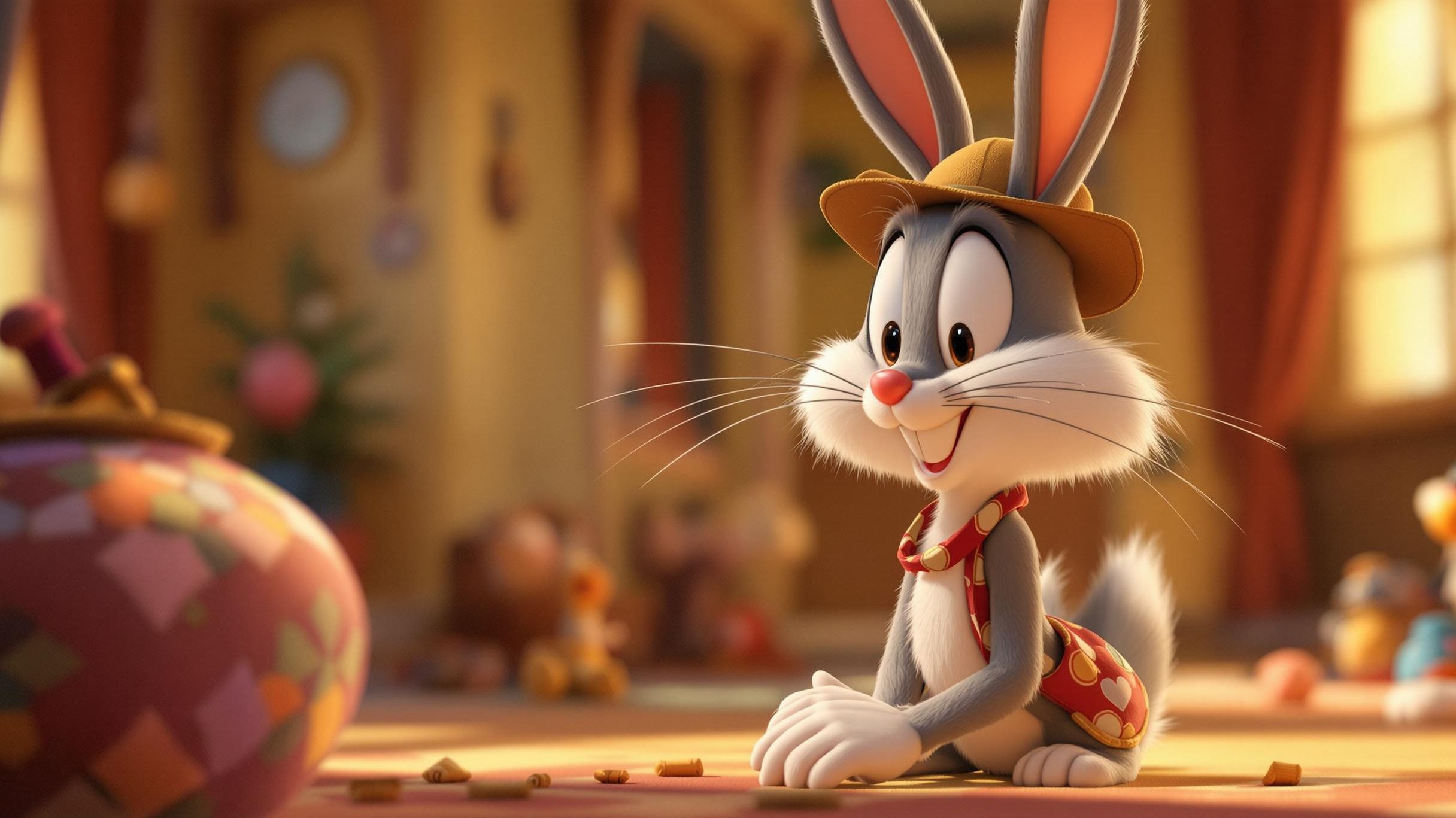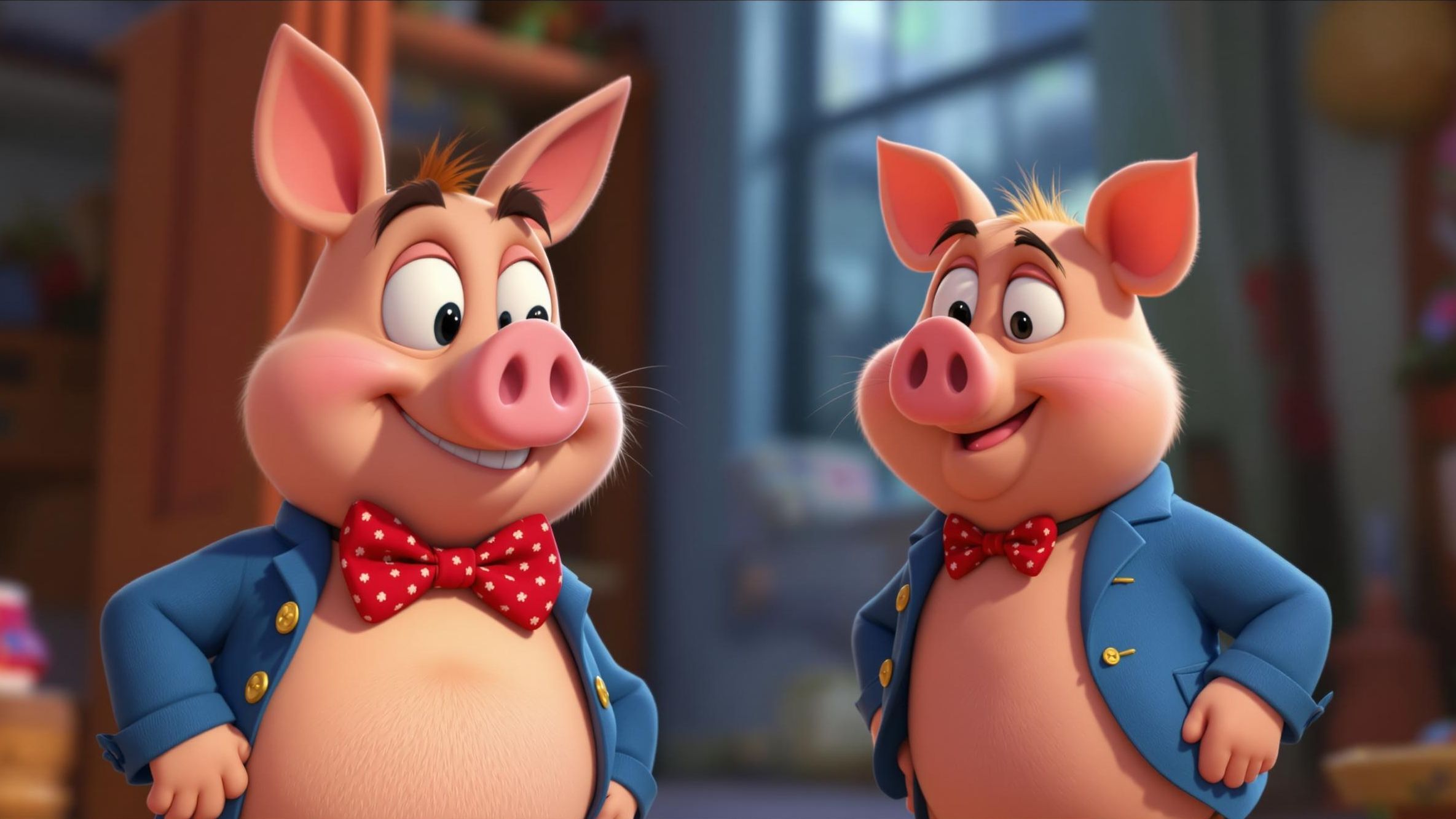You might think Tweety Bird is just an adorable, high-pitched yellow fluffball fluttering around a birdcage saying “I tawt I taw a puddy tat!” And hey, you’re not wrong about the cuteness. But underneath all that chirpy innocence lies one of the most underestimated minds in cartoon history. For decades, Tweety has outwitted Sylvester the Cat with such effortless precision that it’s time we ask the real question: is Tweety just lucky—or secretly a feathered genius? Sure, he’s tiny. Sure, he talks baby talk. But behind those wide blue eyes and that innocent lisp is a strategic mastermind who’s been dodging danger, manipulating outcomes, and engineering cartoon justice since 1942. Tweety doesn’t just survive—he thrives. And the truth is, Tweety Bird might just be the smartest one in the Looney Tunes lineup. Let’s dig into the evidence and see why this bird brain is anything but.
Tweety’s Origins: Born Clever
When Tweety first appeared in 1942’s “A Tale of Two Kitties,” he looked a little different—bare, pinkish, and a lot sassier than the version we know today. But even back then, the smarts were already on full display. He played the two cats against each other, dodged danger with creative finesse, and showed that being small doesn’t mean being powerless. From the beginning, Tweety knew how to use his surroundings to his advantage, a talent that would become his signature strategy in nearly every appearance.
As his look softened over the years and he gained feathers and more childlike charm, his core personality stayed the same. Tweety didn’t become more helpless—he became more underestimated. And that’s exactly how he likes it. He leans into the idea of being sweet and harmless because it lets him set the perfect trap every time. There’s brilliance in deception, and Tweety is an artist of the act.
Master of the Psychological Game
Let’s talk about Tweety’s biggest opponent: Sylvester the Cat. Time after time, Sylvester makes elaborate plans to catch and eat Tweety. And time after time, those plans backfire—spectacularly. Why? Because Sylvester is predictable. He’s greedy, impulsive, and often underestimates his tiny target. Tweety, on the other hand, studies him. He knows Sylvester’s weaknesses—his overconfidence, his impatience, his inability to resist an easy-looking opportunity. Tweety uses these traits against him like a feathered chess master playing 4D cartoon chess.
In many episodes, you can actually see Tweety setting traps in real time. He flutters just out of reach. He squeaks for help when it benefits him. He draws Sylvester into increasingly ridiculous scenarios, often with the help of a conveniently placed dog, an electric fan, or Granny’s rolling pin. He doesn’t panic. He plots. And it always works.
Tweety’s psychological advantage comes from his image. He knows everyone sees him as helpless. That’s his greatest weapon. While Sylvester rages and lunges, Tweety simply sidesteps—both literally and mentally.
Tactical Genius in a Cage
One of the most amazing things about Tweety is how often he operates from inside his cage. Think about that for a second: he’s locked inside what is essentially a golden prison, yet he continues to dominate the cartoon landscape like a bird-shaped Napoleon. That’s not just survival—that’s tactical superiority.
Tweety uses his cage like a command center. It gives him the perfect vantage point to watch Sylvester’s every move. He uses the cage bars as both defense and offense. He can slip through them, while Sylvester cannot. He turns the space into a fortress, often weaponizing it with pulleys, springs, or objects that just happen to be in the room.
This level of spatial awareness is next-level cartoon strategy. He doesn’t just wait for help—he sets the terms of battle from behind literal bars. That’s not luck. That’s leadership.
His Allies Are No Accident
Another underrated skill Tweety shows time and time again? Choosing the right allies. Sure, Granny shows up and saves the day a lot—but Tweety always knows just when to cry out. He never wastes his distress calls. He times them perfectly, waiting until Sylvester is at his most vulnerable to bring in reinforcements. He understands his surroundings better than anyone else and uses every character on the board to his advantage.
Then there’s Hector the Bulldog—Sylvester’s worst nightmare. Tweety positions himself in a way that guarantees Hector’s interference. He leads Sylvester into traps that activate Hector’s protective instincts. Sometimes he even plays innocent while Sylvester is punished, feigning confusion with a “Bad old puddy tat!” even though he orchestrated the whole thing.
Make no mistake: Tweety knows who’s around, what they’re capable of, and exactly how to activate them when needed. That’s strategy. That’s social intelligence. That’s bird brilliance.
He Outsmarts Everyone, Not Just Sylvester
While Sylvester is the primary target of Tweety’s tiny wrath, he’s not the only one to fall victim to Tweety’s genius. Remember the episodes with other predators? Tweety takes them down, too. Whether it’s cats, burglars, or other wild animals, Tweety handles each situation with the same mix of cunning and calm. He never flies off in panic. He calculates. He adjusts. He adapts.
In “Home, Tweet Home,” a different cat tries to snack on Tweety. Spoiler alert: it ends the same way—with Tweety on top, victorious as ever. Tweety doesn’t rely on a single method. He evolves his approach depending on who he’s dealing with. That’s something even Bugs Bunny doesn’t always do. Bugs is fast and funny, sure—but Tweety is methodical. He reads the room, studies the threats, and then strikes with precision.
This adaptability isn’t just impressive—it’s borderline genius. You can’t rely on brute force when you’re two inches tall. But if you’re two inches tall and twenty times smarter than your enemy? You win every time.
He Weaponizes His Innocence
Let’s be honest part of why people don’t see Tweety as smart is because he’s so cute. That baby voice. The giant blue eyes. The adorable waddle. The way he tilts his head like he has no idea what’s going on. It’s the ultimate cover story.
But that’s the point.
Tweety uses his innocence like a disguise. It’s camouflage. While his enemies are distracted by his fluffiness, he’s already five steps ahead. He doesn’t need brute strength or intimidating size. He has perception, timing, and charm. Even the audience is sometimes fooled—until Tweety delivers a perfectly timed zinger or springs a perfectly timed trap.
Think of him like a cartoon Sherlock Holmes in bird form—disarming at first glance, dangerous when underestimated.
The Secret of His Survival
In any other show, Tweety would’ve been caught by now. Think about how many episodes there are. Think about how many times Sylvester could’ve technically won if Tweety weren’t ten times smarter. But Tweety never just escapes. He wins. He doesn’t merely flee danger—he reverses it. He outwits it. He makes his enemies look foolish and does it all without breaking a sweat or a feather.
What’s even more impressive? Tweety doesn’t hold grudges. He’s not out for revenge. He just wants to live his life and be left alone. But when the puddy tats come calling, he’s ready—with traps, allies, and the kind of strategic mind generals would admire.
Tweety’s survival isn’t an accident. It’s a masterclass in manipulation, defense, and psychological warfare disguised in a canary costume.
He’s Been Playing the Long Game for 80 Years
Tweety’s been around since 1942, and yet he’s still going strong. That’s staying power. He’s been featured in everything from shorts to feature-length films, from Space Jam to Tiny Toon Adventures. He’s crossed into memes, merchandise, and multigenerational fame.
And why? Because he’s not just cute—he’s clever. People keep watching because it’s satisfying to see the underdog (or underbird) win. And Tweety always wins. He wins because he learns. He watches. He adapts. He takes the chaos thrown at him and turns it into comedy. He doesn’t need to evolve physically because he’s always been mentally ahead of the game.
That’s not just cartoon magic. That’s character genius.
A Feathered Force to Be Reckoned With
Tweety Bird might look like a sweet little snack for any cat with a brain—but let’s face it, no cat has ever gotten the better of him. And that’s because Tweety is playing a smarter game. He’s not just avoiding danger—he’s engineering its downfall. He’s mastered the art of misdirection, turned cuteness into camouflage, and built a reputation as one of the most unexpectedly brilliant minds in the cartoon universe.
So the next time you see that tiny yellow canary batting his lashes and cooing in baby talk, don’t be fooled. You’re not looking at a helpless pet—you’re looking at a predator’s worst nightmare. Because Tweety isn’t just surviving. He’s winning. And he’s doing it with a wink, a trap, and a perfectly timed “I tawt I taw a puddy tat!”




